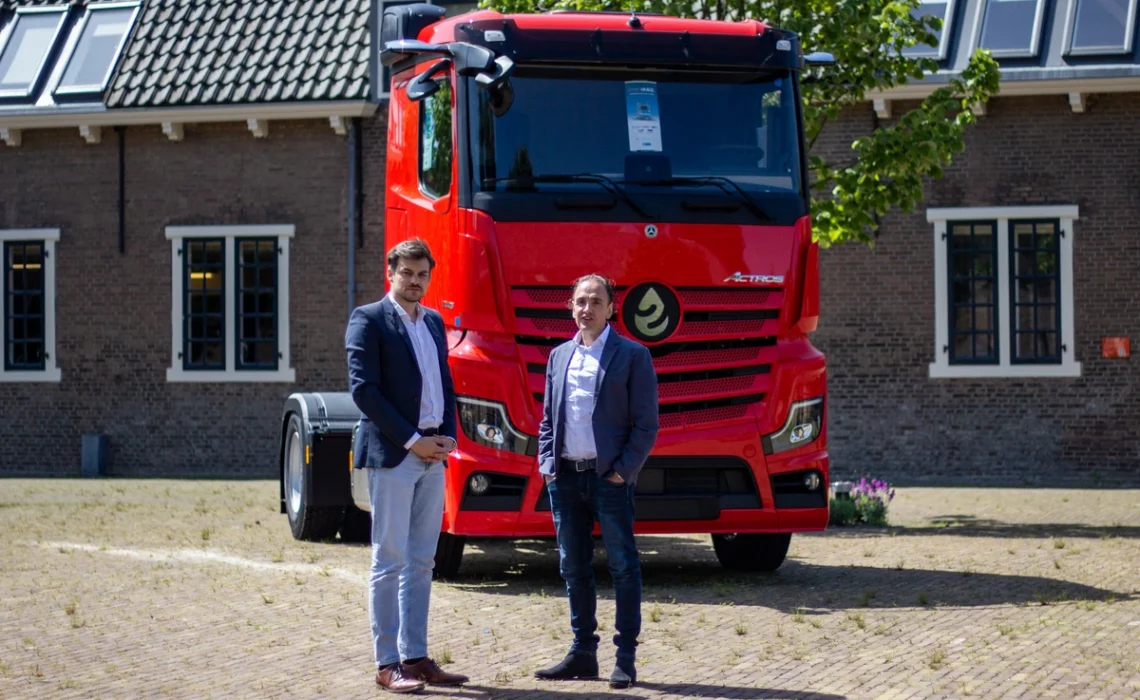Some highlights from the interview:
“Driving on hydrogen offers great opportunities and lots of advantages, Schreiber emphasizes. “For driving short distances you can get along fine with an electric truck that you charge with a plug, but for really heavy transport and long distances, I don’t believe in it. The battery packs of these e-trucks are very heavy and limit your payload.” Although more long-range e-trucks are entering the market and more and more charging stations are being added, charging such batteries takes a lot of time and a lot of power, Schreiber explains. “In some parking lots along the Autobahn there are sometimes many dozens, if not hundreds of trucks. If you want to make Megawatt Charging possible for such numbers of trucks, you need unprecedented power capacity. That’s a big challenge. In my view, an electric truck equipped with a fuel cell and running on hydrogen is a much better option.”
“You can see that large parties in the Netherlands are investing heavily in hydrogen and that the government is also strongly committed to the opportunities of hydrogen. Not only for driving or sailing, but also for other purposes. That certainly offers opportunities and can drive its deployment.”
Transporters are also enthusiastic about hydrogen and the opportunities it offers. “Many transportation companies are showing interest and are open to it. At the moment it is mainly the pioneers who are investing. The costs are very high, both for the trucks and for fueling hydrogen. But the price of the technology will drop in the coming years, making it interesting for more companies.” Schreiber also thinks that financial advantages for zero-emission trucks will narrow the gap. “Look at Germany and the MAUT schemes for ZE trucks. Prices will converge. Also in the Netherlands. For now, the number of hydrogen-powered trucks will remain modest. But in the longer term, this technology will play a major role in heavy transport. I am convinced of that.”
The interview also discusses European regulations guiding the development of the hydrogen truck, the challenges of the limited number of hydrogen refueling stations, and the enthusiasm in the transport sector for hydrogen as a sustainable solution.
Read the full article (in Dutch) on page 42 below:
Source: logistiek.nl

